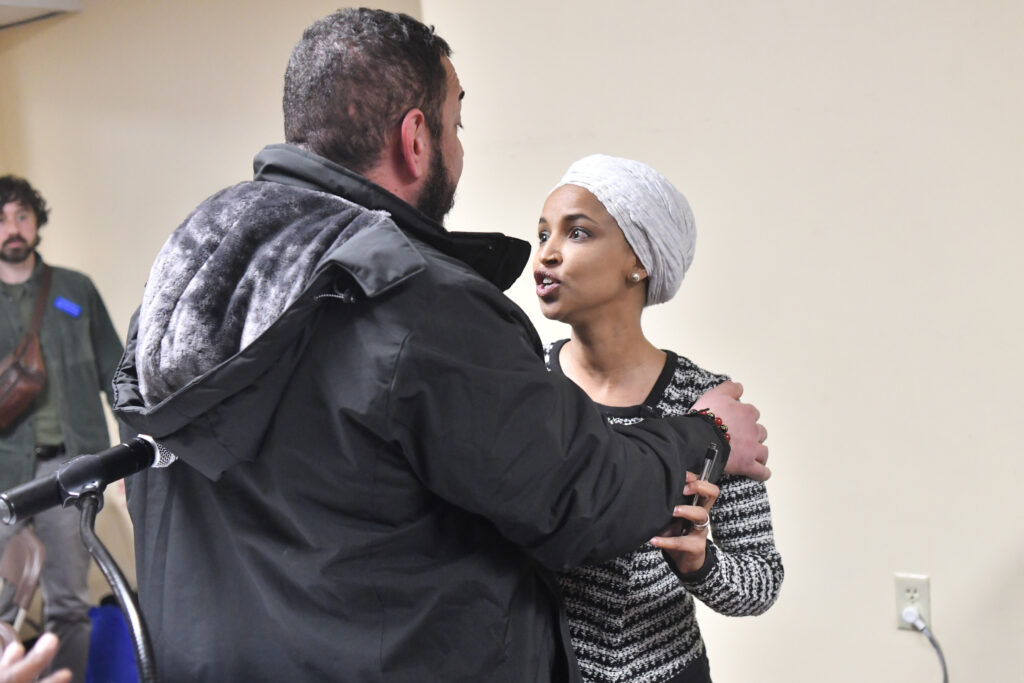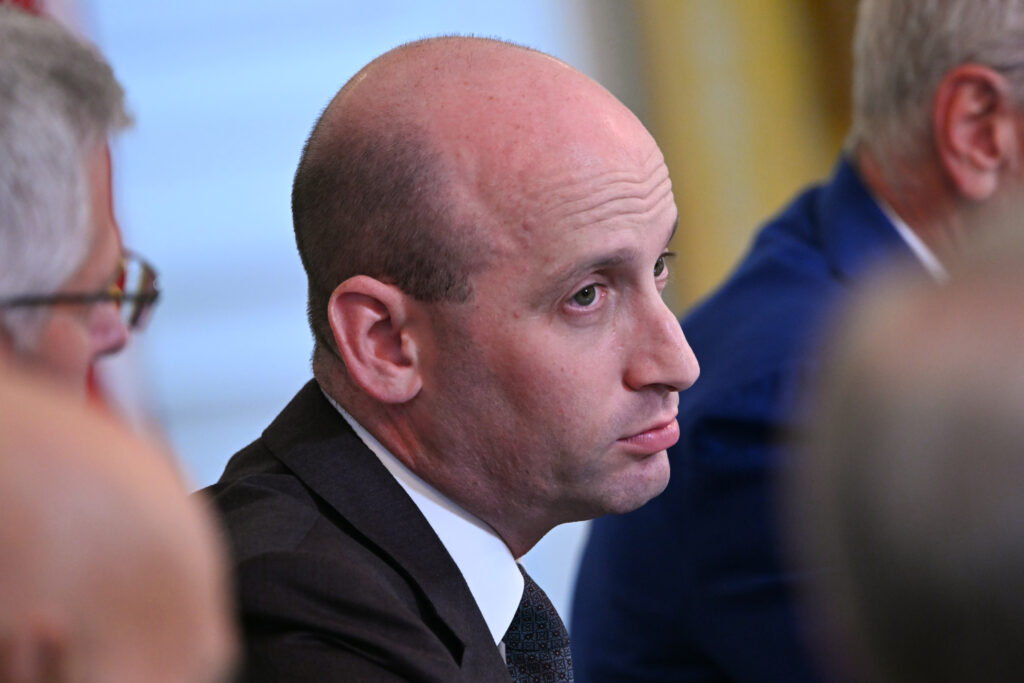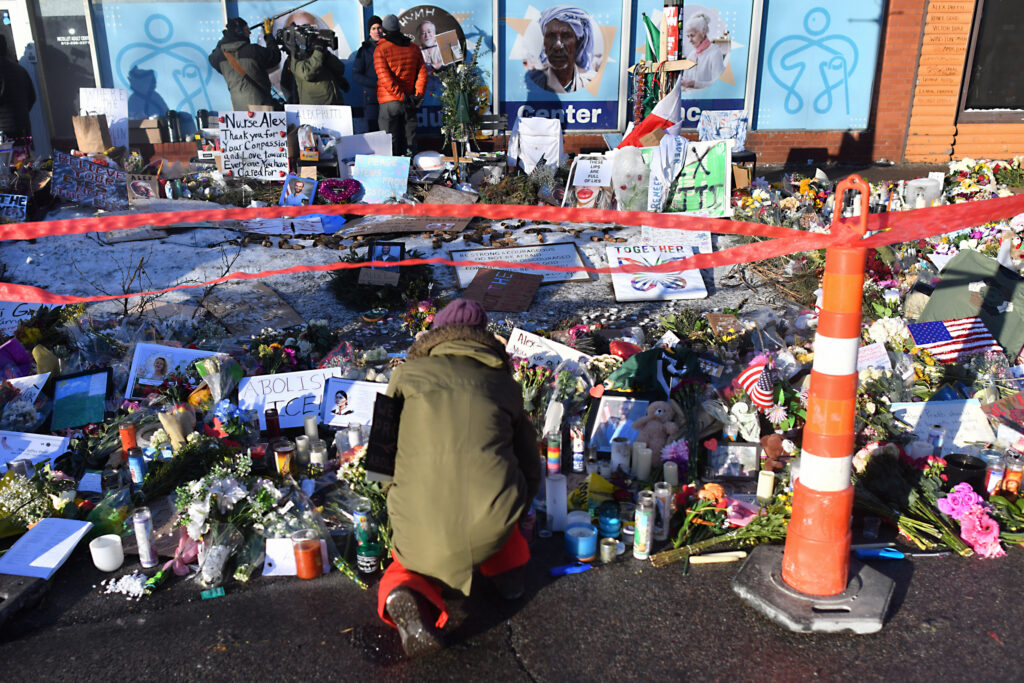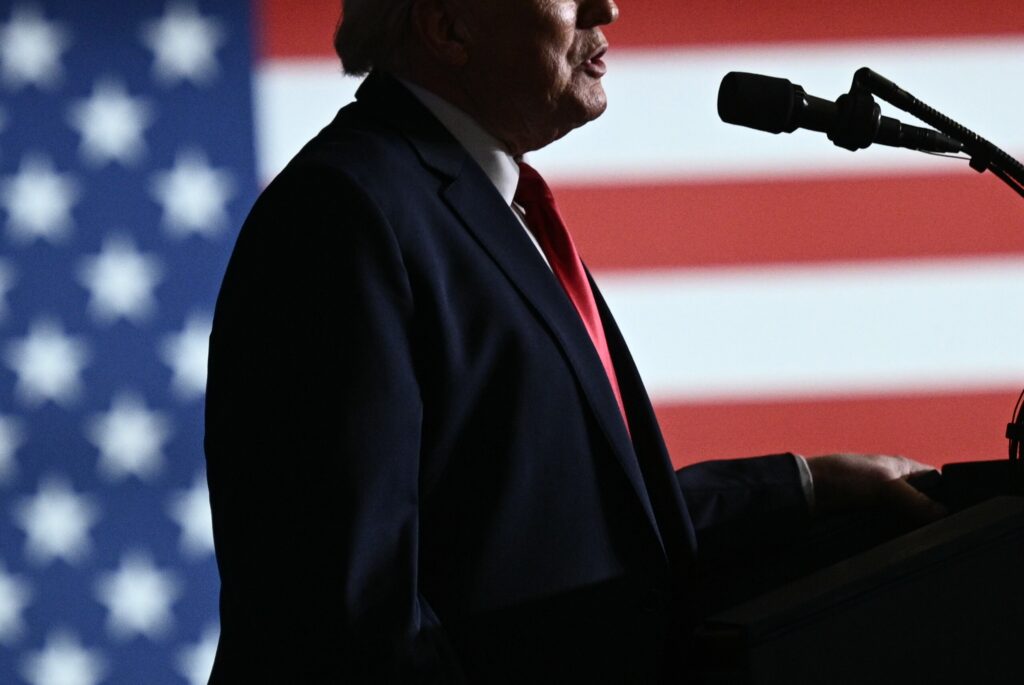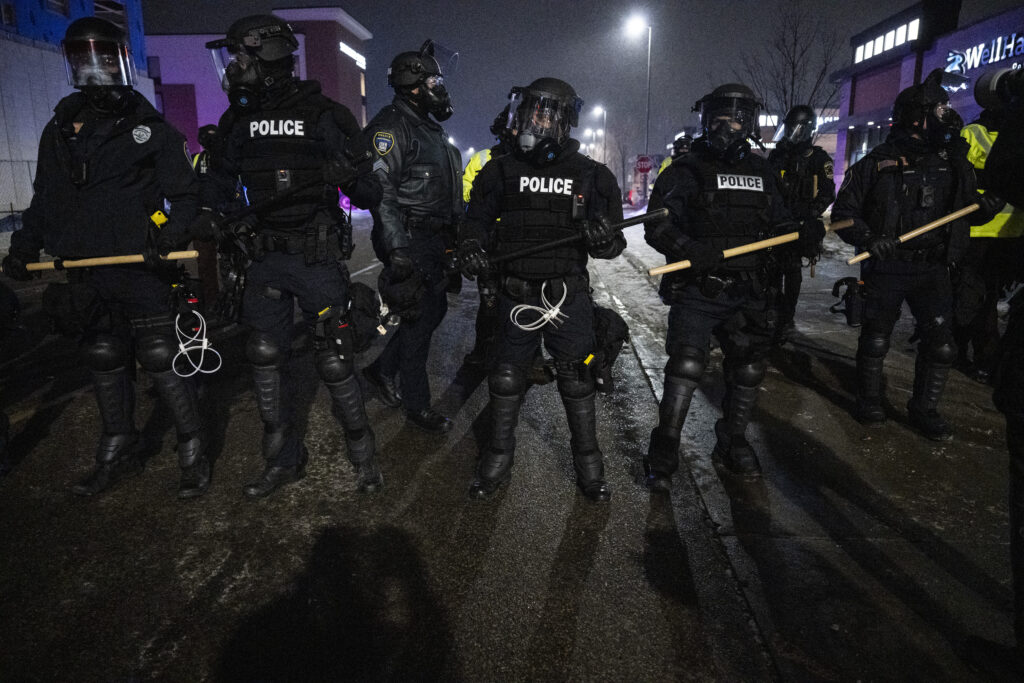Minnesota congresswoman unbowed after attacked with liquid
Seconds after an attacker sprayed US Congresswoman Ilhan Omar with unidentified liquid at a Minnesota meeting, she confronted the man and then defiantly went on to finish her comments, AFP journalists saw. The Somali-born US lawmaker, a constant target of Donald Trump’s attacks, had just called for the president’s homeland security chief to resign in the wake of immigration agents killing two US citizens in a matter of weeks. The attacker, identified by police as 55-year-old Anthony Kazmierczak, managed to spray Omar before he was tackled and removed from the Tuesday meeting in Minneapolis. She was unharmed, police said.Yet before he was even grabbed, Omar stepped rapidly toward the attacker with her fist raised. The lawmaker then went on to urge the crowd to settle down and listen to her remarks.”Here is the reality that people like this ugly man don’t understand — we are Minnesota strong and we will stay resilient in the face of whatever they might throw at us,” Omar said to the meeting of constituents.Authorities have not reported what may have motivated the attacker, but the incident comes as Minneapolis is in a running confrontation with Trump’s aggressive deportation campaign.Ahead of the incident, Omar’s constituents raised issues with her as eclectic as trash collections and the plight of North Minneapolis, alongside fears over the sweeping immigration operations that have sparked large protests.Just as she called for the resignation of Department of Homeland Security Secretary Kristi Noem, the attacker jumped to his feet from the front row of seats in the meeting room.He then appeared to spray the contents of his syringe, prompting complaints about a foul smell, AFP correspondents witnessed. Two men quickly tackled the assailant, sparking calls of “Nazis out” as he was led from the room.Stunned onlookers gasped and recoiled as the drama unfolded against an already tense backdrop in Minnesota as its targeted by Trump’s immigration operation.Omar has accused Trump of turning Minneapolis into a “war zone” while he has accused her of corruption without evidence. – ‘Not about him’ -“It’s not about him, Ilhan,” said one bystander, seeking to encourage Omar, an outspoken Trump critic, to continue.Undeterred, Omar proclaimed “please don’t let them have the show.”The suspect was arrested on suspicion of third-degree assault, according to police. An investigation was underway.One witness said they asked themselves “is this really happening?” “He could have done something else,” he told AFP.Questions will be asked about security arrangements at the event with members of the public checked by staff, but members of the press allowed in without scrutiny.After the event, Omar, the first Somali-American representative, posted on X “I’m OK.””I’m a survivor so this small agitator isn’t going to intimidate me from doing my work,” she wrote.
